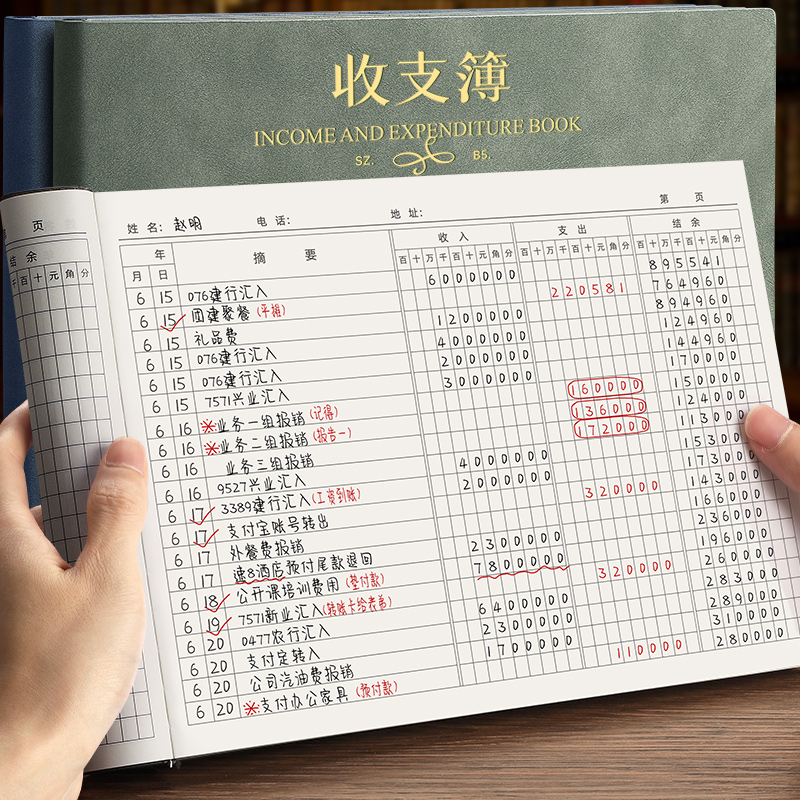精算细账:全面解析财务账本
女神内控
2024-10-29 00:25:20
0次
精算细账:全面解析财务账本
在现代社会,财务管理对于企业和个人都至关重要。财务账本作为记录和反映经济活动的重要工具,其准确性和完整性对于决策者来说具有不可估量的价值。本文将全面解析财务账本,精算细账,帮助读者更好地理解和运用财务账本。
一、财务账本的概念与作用
财务账本是指用来记录企业或个人经济活动的账簿,包括收入、支出、资产、负债等多个方面。它是财务管理的基础,能够帮助决策者了解企业的经营状况、资金流向和盈利能力。通过财务账本,企业可以更好地规划资金使用,避免浪费和损失,提高经济效益。
二、财务账本的种类与内容
1. 现金日记账:记录企业或个人的现金流入和流出情况,包括收款、付款、提现等。
2. 银行日记账:记录企业或个人银行账户的收支情况,包括存款、取款、转账等。
3. 资产类账簿:记录企业或个人的资产情况,如固定资产、流动资产等。
4. 负债类账簿:记录企业或个人的负债情况,如应付账款、借款等。
5. 利润表和资产负债表:反映企业或个人的经营成果和财务状况。
三、精算细账的方法与技巧
1. 分类明细:将经济活动按照性质和类型进行分类,如按照项目、部门、时间等进行分类,以便更好地掌握资金流向和用途。
2. 及时记录:确保每一笔经济活动都及时记录在账,避免遗漏和错误。
3. 定期核对:定期与银行、供应商等核对账目,确保账目准确无误。 4. 预算控制:制定合理的预算,对实际支出进行严格控制,避免超支和浪费。 5. 数据分析:通过对财务数据进行深入分析,发现潜在问题和机会,为决策提供有力支持。 四、财务账本的重要性1. 提高决策效率:通过财务账本,决策者可以快速了解企业的经营状况和资金流向,从而做出更明智的决策。
2. 规避风险:及时发现潜在问题和风险,采取有效措施进行防范和应对。 3. 提高经济效益:通过精算细账,企业可以更好地规划资金使用,降低成本,提高经济效益。 4. 维护信誉:准确的财务账本有助于维护企业信誉,增强投资者和合作伙伴的信心。 五、总结 财务账本是企业和个人财务管理的重要工具,它记录了经济活动的全过程,为决策者提供了宝贵的参考信息。通过精算细账,我们可以更好地掌握资金流向和用途,规避风险,提高经济效益。因此,我们应该重视财务账本的管理和运用,确保其准确性和完整性。同时,我们还要不断学习和掌握新的财务管理知识和技能,以适应不断变化的市场环境。 [此处为中文原文的翻译] Fine Accounting: A Comprehensive Analysis of Financial Account Books In modern society, financial management is crucial for both businesses and individuals. As an important tool for recording and reflecting economic activities, financial account books hold inestimable value for decision-makers in terms of accuracy and completeness. This article will comprehensively analyze financial account books and perform fine accounting to help readers better understand and apply them. First, the concept and role of financial account books. Financial account books are used to record the economic activities of a business or individual, including income, expenses, assets, liabilities, and other aspects. They are the foundation of financial management and can help decision-makers understand the company's operating status, capital flows, and profitability. Through financial account books, businesses can better plan the use of funds, avoid waste and losses, and improve economic efficiency. Secondly, the types and content of financial account books. There are cash journals that record cash inflows and outflows for businesses or individuals, including collections, payments, withdrawals, etc.; bank journals that record the income and expenditure of bank accounts for businesses or individuals, including deposits, withdrawals, transfers, etc.; asset account books that record the assets of a business or individual, such as fixed assets and current assets; liability account books that record the liabilities of a business or individual, such as accounts payable and borrowings; and profit and loss statements and balance sheets that reflect the operating results and financial status of a business or individual. Thirdly, methods and techniques for fine accounting. We should perform detailed classification of economic activities based on their nature and type, such as by project, department, time, etc., to better grasp the flow and use of funds. We should also ensure that every economic activity is recorded in the account in a timely manner to avoid omissions and errors. Regular reconciliation with banks, suppliers, etc., is necessary to ensure accurate accounts. It is also
上一篇:财务报表编制与账本梳理
下一篇:账本操作实务:从入门到精通
相关内容
热门资讯
账本知识百科
账本,用于记录企业或个人财务交易,包括现金账本、分类账本等,需确保准确性、及时性、保密性和合规性,是...
账本错误与修正方法
摘要:账本错误需谨慎对待,可分类型采取修正方法,如立即修正、保留原始记录、使用正确修正方法、重新审核...
每日账本记录
摘要:每日账本记录是掌握财务状况的重要手段,包括准备、记录收入与支出、备注及汇总等步骤。通过认真记录...
经营关账全面解析
经营关账是企业周期性财务结算与核算过程,涉及准备、结算、核对账目、编制报表、审计调整及提交报告等步骤...
账本快速入门指南
账本指南:本文介绍账本概念、种类及使用方法,包括开设、记录要点、安全保护等,并分享快速掌握技巧和注意...
"理财入门:全面掌握账本"
理财入门,掌握账本是基础。账本可记录财务交易,助理财务管理、避免浪费。建立账本需选合适类型,分类记录...
家庭财务收支账本
摘要:家庭财务收支账本是管理家庭财务的重要工具,可记录收入、支出,帮助家庭成员理解财务状况、规划预算...
财务账本指南:优化流程与效率
财务账本指南:本指南提供优化流程和效率的方案,包括规范制度、科学分类、及时录入和审批流程等步骤,并推...
账本宝典:从入门到精通的指南
本文介绍了从入门到精通的账本使用指南,包括基本概念、进阶技巧和高级技能。初学者需了解账本类型和记录方...
经营状况全盘账
经营状况全盘账指企业经营全过程的财务记录与经营管理情况,包括收入、支出、库存、资金及财务报表。编制时...



